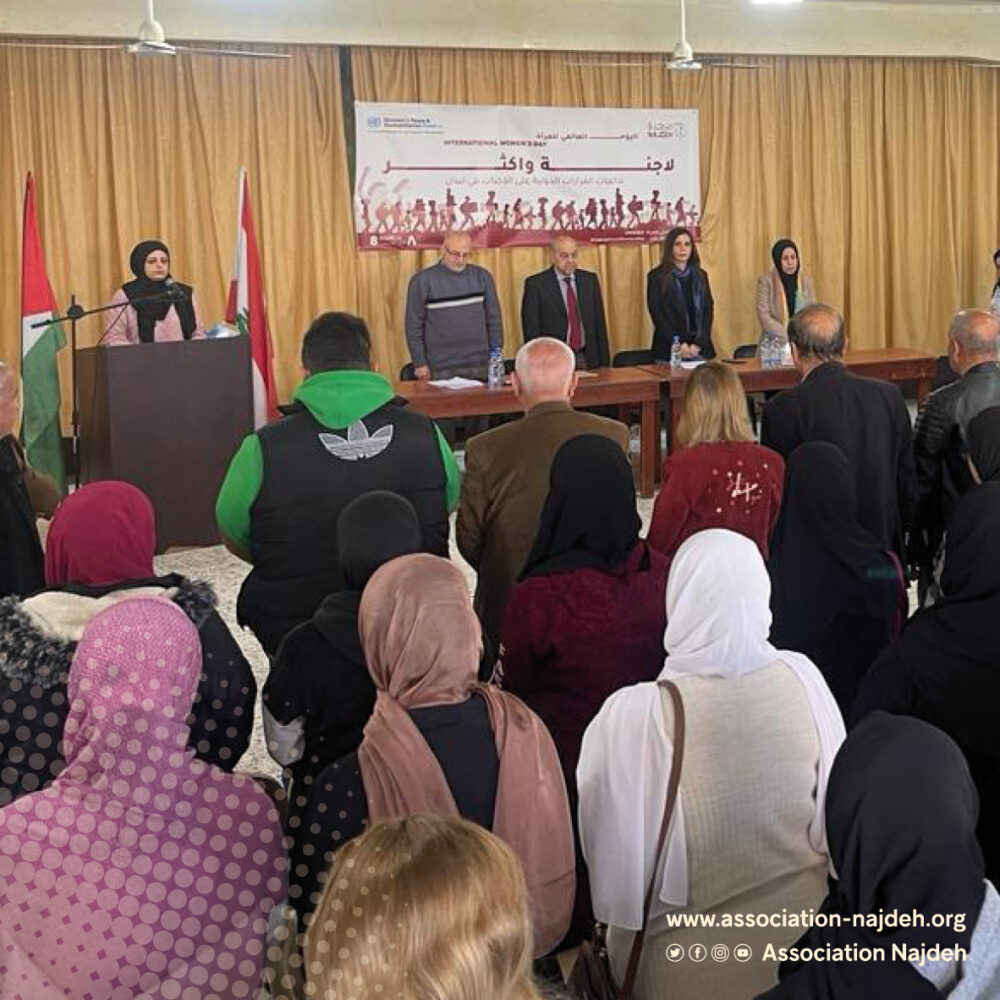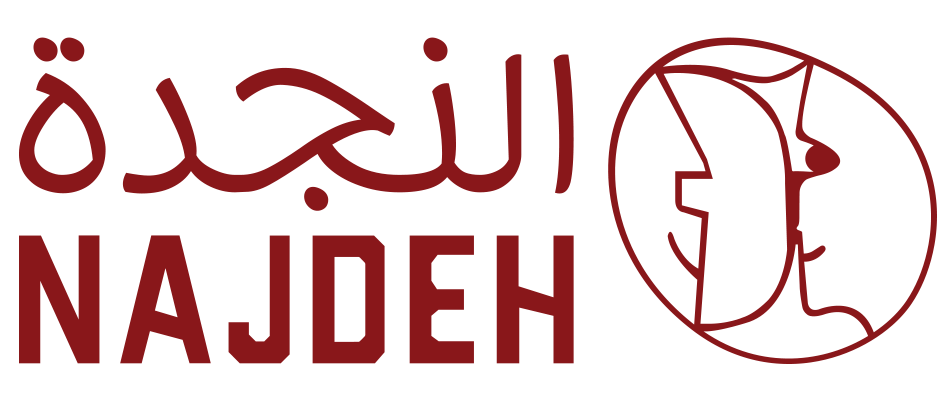
More than a refugee – Al-Bass Camp
7/03/2024
Al-Bass – On the occasion of International Women’s Day, Association Najdeh organised a conference and open discussion titled “Refugee and More: The Implications of International Decisions on Refugee Women in Lebanon.” The event was attended by representatives of popular and local committees in the Tyre region, Palestinian factions, educational, social, and health institutions, social activists, and media outlets.
Mrs. Hiba Hajaj, the Coordinator of the Women and Girls’ Rights Programme – Tyre, welcomed the attendees. Following this, Mrs. Hala Marai, the Coordinator of the Tyre Branch, delivered a speech for Women’s Day. She emphasised, “Is this a day to celebrate the struggles of women, or is it a violation of the right to life for Palestinian women and girls? Therefore, international institutions, from the United Nations to human rights organisations and agencies for women’s and girls’ rights, are called upon to apply uniform and non-discriminatory standards to Palestinian women and girls… and to acknowledge the significant role of women in every historical struggle and their distinctive contributions.”
Mrs. Sanaa Qasem, a member of the General Assembly in the Al-Houla Association, spoke about the overall situation of Palestinian women, particularly in Gaza, highlighting the difficult conditions they endure and the hardships faced by women in the diaspora. She also addressed the psychological impact of war on women in Gaza, urging women’s rights organisations to extend genuine support to Palestinian women in Gaza and the diaspora, as women are the mothers who raise future generations. Sanaa highlighted the severe challenges faced by pregnant women in Gaza, including the lack of anaesthesia during childbirth, which has profound psychological repercussions.
Dr. Khalil Nassar, Secretary of the Popular Committees in the Tyre region, discussed the difficult circumstances faced by refugees and the decisions made by UNRWA that do not serve the Palestinian people in the diaspora. He added, “As popular committees, we are continuously active in advocating for UNRWA, as it is the sole witness to the Palestinian Nakba.” He spoke about the potential impacts if UNRWA were to cease its services and the consequences for Palestinian women.
Mr. Mohammad Moussa, a respected educator, addressed the harsh realities faced by Palestinian women and Arab women in general. He spoke about the struggle of Palestinian women alongside men and called for increased financial support to ensure the continuation of UNRWA’s operations in refugee settings. Moussa concluded his speech by emphasising the need to activate all Palestinian frameworks to support the continuation of UNRWA’s medical, educational, and other services. At the end of the meeting, some interventions and discussions were taken from the attendees.
